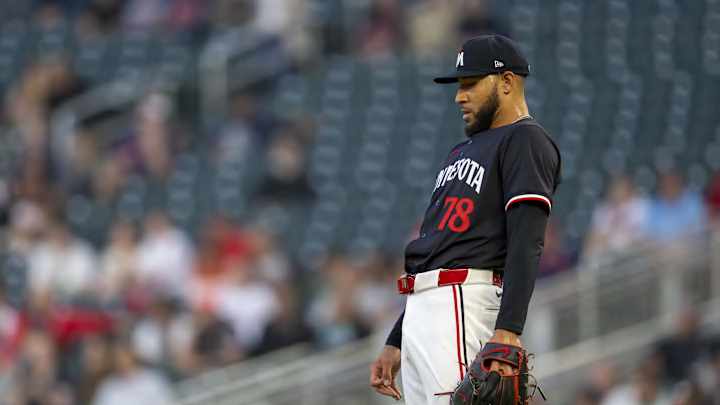The Twins' second-half free fall finally reached rock bottom on Thursday night, a true comedy of errors leading to an 8-6 loss to the lowly Marlins that more or less dashed Minnesota's playoff hopes. It's a startling exclamation point on a startling collapse for a team that not too long ago seemed to be sailing toward the postseason — Minnesota's playoff odds climbed as high as 95 percent back on Aug. 17, only for the team to lose 20 of its next 30 games, the third-worst mark in the Majors ahead of only the Angels and White Sox.
It's also the product of a full year of mismanagement, the predictable result of an ownership group that's done nothing but cut corners from the moment last season ended. There's plenty of blame to go around when a team falls so thoroughly on its face. But if you want to point fingers — and we can hardly blame Twins fans if they do — be sure to start with the leadership that set this roster up to fail.
Why the Pohlads bear the blame for the Twins' September spiral
On the heels of the team's first playoff series win in two decades, it seemed like Minnesota was ready to join the ranks of the AL's inner circle in 2024. But instead of getting aggressive, the Pohlad family opted to go in the opposite direction, slashing payroll by some $30 million. There were extenuating circumstances at play in that decision, specifically the uncertainty surrounding the team's local TV deal. But the Pohlads are worth over a billion dollars; it's hard to believe that such a dramatic reduction was necessary, and it resulted in a team that was hardly equipped to weather the storm of a 162-game season.
To be clear, injuries have played their part. This entire brutal stretch has come without starter Joe Ryan and top reliever Brock Stewart, while closer Jhoan Duran has been battling decreased velocity and stars like Royce Lewis and Byron Buxton have both missed extended time. But this is baseball in the year 2024; you'll be hard-pressed to find a team that hasn't dealt with injuries, particularly to its pitching staff.
The difference is that the Twins left themselves unprepared, shopping in the bargain bin and hoping for the best. Anthony DeSclafani was the lone rotation acquisition over the winter; Trevor Richards was the lone acquisition at the trade deadline. DeSclafani never threw a pitch in Minnesota, while Richards was cut four weeks later. The result? A team fighting for its playoff life found itself with three rookies (Simeon Woods Richardson, David Festa and Zebby Matthews) in its rotation.
The story was largley the same in the bullpen, where cast-offs like Steven Okert, Jay Jackson and Josh Staumont predictably imploded in medium-leverage roles. With Stewart out and Duran up-and-down, manager Rocco Baldelli was left to cycle through a series of increasingly desperate (Ronny Henriquez? Caleb Thielbar?) options. Minnesota ranks an ugly 27th in team ERA since Aug. 18, and that simply put too much pressure on an offense that wasn't built to withstand it (and was dealing with injuries of its own).
If you want to get mad at Baldelli, that's fine. If you want to get mad at the underperforming lineup, that's fine too. But everything starts at the top, and the fact remains that Minnesota had the opportunity to load up on talent in support of a core that it had every reason to think was good enough to compete for a pennant this season. It opted not to, strictly for financial reasons, and that turned the typical wear-and-tear of a long season into an unmitigated disaster.
